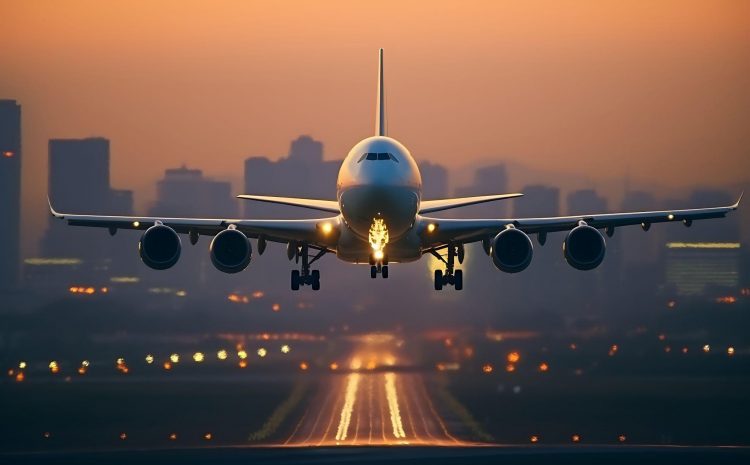AI Recruitment in the Aviation Industry: Flying Towards a More Efficient Hiring Process

In recent years, artificial intelligence (AI) has transformed many sectors, and the aviation industry is no exception. As airlines and aviation companies face a growing demand for qualified professionals, particularly pilots, they are turning to AI-driven solutions to streamline recruitment processes. The integration of AI aviation jobs has significantly impacted how companies identify and hire the right talent, making travel industry recruitment more efficient and accurate.
AI-powered tools can sift through thousands of resumes in a fraction of the time it would take recruiters, identifying the most suitable candidates based on predefined criteria such as experience, certifications, and hours. Additionally, AI systems field visit report https://www.customwritings.com/howtowrite/post/report-field-trip/ are able to predict a candidate’s long-term performance and cultural fit, reducing the likelihood of mismatches and improving retention rates. This technology allows airlines to speed up the recruitment process, ensuring that critical positions are filled quickly while maintaining high standards of talent selection.
The Role of AI in Aviation Recruitment
Artificial intelligence technology has opened new doors in aviation recruitment, allowing companies to process large volumes of applications quickly and accurately. Traditionally, hiring pilots and other aviation personnel was a time-consuming process that required sifting through numerous resumes and conducting numerous rounds of interviews. Now, artificial intelligence automates much of this work by screening candidates, assessing their qualifications, and even predicting how well they will fit into the company’s culture. This approach allows recruiting teams to focus on the candidates who best meet the company’s requirements, saving valuable time and resources.
For example, artificial intelligence tools can analyze a pilot’s training records, flight hours, and experience with different aircraft models to determine their suitability for specific aviation roles. The technology not only helps identify talent, but also assesses the soft skills and adaptability that are essential to thriving in a dynamic aviation environment. This takes AI-powered pilot recruitment accuracy to a new level, ensuring that only the best candidates are selected.
AI’s Impact on the Travel Industry Recruitment
In a sector as dynamic as the travel industry, AI-powered recruitment is revolutionizing the way we hire talent for all positions, not just pilots. From ground staff to customer service agents, AI is helping to create a seamless recruitment process. Automated systems can conduct an initial screening of candidates, weeding out those who don’t meet basic criteria before recruiters take over and conduct a more in-depth assessment.
Additionally, AI in travel industry recruitment can be leveraged to analyze market trends, forecast talent shortages, and even predict the future demand for specific aviation jobs. This allows companies to stay ahead of their competition by anticipating workforce needs and sourcing candidates faster than ever before.
Streamlining Pilot Hiring with AI
One of the most critical roles in aviation is that of the pilot. Hiring pilots with AI enables aviation companies to tap into a global pool of talent while ensuring the highest standards of safety and professionalism. By integrating AI tools into the recruitment process, airlines can use predictive analytics to assess pilot performance, ensuring they recruit individuals with the best chances of succeeding in the role.
Moreover, AI systems can conduct initial competency tests, including scenario-based assessments that simulate real-life flying situations. This helps airlines make better-informed decisions about pilot recruitment, reducing the risk of hiring individuals who may not be a perfect fit for the job.
A Future of Enhanced Efficiency
As the aviation industry continues to evolve, the use of AI in recruitment is likely to become even more widespread. The adoption of AI technology not only accelerates the hiring process but also improves the overall quality of hires, ensuring that airlines maintain safety, efficiency, and competitiveness in a rapidly growing market.
For companies looking to implement AI in their recruitment processes, it is essential to explore solutions that are best suited for their specific needs. One tool that can be particularly useful for recruitment tasks, such as creating quizzes or tests for potential hires, is the best AI for multiple choice questions. Using these tools, aviation companies can assess candidates on a wide range of criteria with greater accuracy, ultimately leading to better hiring decisions.
Conclusion
AI-driven recruitment in the aviation industry is quickly becoming the norm. With its ability to streamline processes, enhance candidate screening, and predict the future needs of the workforce, AI is revolutionizing how aviation companies hire the best talent. As the technology continues to advance, we can expect even greater efficiencies in the recruitment process, ensuring the aviation industry is well-equipped to meet future challenges.